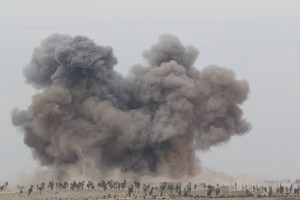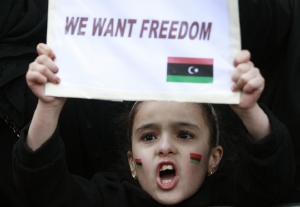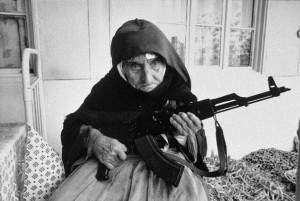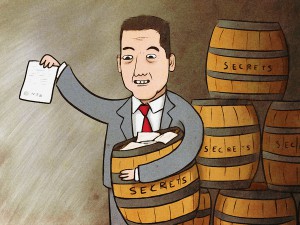Below I have ‘corrected’, rearranged and reposted the stream of anti-communist attacks by Steve dumped on the Pell thread in a particularly gross manner. It is particularly gross considering the previous effort on my part devoted to dealing with the WW2 policies of the USSR, and the assessment also made by other communists of my ilk and background of the 70% correctness of Stalin’s overall efforts to make revolution.
This dump of anti-communist bile is particularly notable at the time of the 30th anniversary of the Tiannanmen Square massacre by Deng and his anti- Mao capitalist roaders – that really did turn out to be fascists as Mao said they would. And also on the 75th D-day commemorations where the western imperialists scrambled to prevent the Red Army from overrunning all of Germany etc., (and perhaps liberating France as well).
The distraction of the trials remains a distraction whatever the guilt or innocence of all or any of the various accused.
A gigantic war was planned by very many powers that hated the USSR and wished to see it destroyed. That plan would inevitably cost tens of millions of lives. Yet Stalin is the constant baddie that must be focused on by Steve when all this does is hide the mass-murdering war planners and I do not speak of the Japanese. http://thediplomat.com/2012/08/28/the-forgotten-soviet-japanese-war-of-1939/
Nor do I speak of the Poles, Hungarians, Finns and all the other bordering countries who were well known to be actively plotting to destroy the USSR.
I am also not referring to the Germans or the Italians either as their hatred and goals are also very well understood by sensible people.
I am referring primarily to Britain, France and the U.S.A.!
‘But war is inexorable. It cannot be hidden under any guise. For no “axes,” “triangles” or “anti-Comintern pacts” can hide the fact that in this period Japan has seized a vast stretch of territory in China, that Italy has seized Abyssinia, that Germany has seized Austria and the Sudeten region, that Germany and Italy together have seized Spain — and all this in defiance of the interests of the non-aggressive states. The war remains a war; the military bloc of aggressors remains a military bloc; and the aggressors remain aggressors.
It is a distinguishing feature of the new imperialist war that it has not yet become a universal, a world war. The war is being waged by aggressor states, who in every way infringe upon the interests of the non-aggressive states, primarily Britain, France and the U.S.A., while the latter draw back and retreat, making concession after concession to the aggressors.
Thus we are witnessing an open re-division of the world and spheres of influence at the expense of the non-aggressive states, without the least attempt at resistance, and even with a certain connivance, on their part.
Incredible, but true.’
Steve claims to be a supporter of the Chinese Revolution, but actually he is still just a garden variety Trotskyite who can’t stand the fact that he is now a cruise missile something or other. Steve can’t move in any direction without condemning the terrible communists, that he insists despite our credentials, are really and fundamentally rotten anti-democrats. Yet his ‘democrats’ were planning mass murder on a gigantic scale.
Stephen Owens June 2, 2019 at 3:59 pm‘OK you are correct about the Chamberlain case and you might be right about the Pell case…’ Well why not leave it at that then? We won’t have long to wait till the 3 judges deliver their acquittal soon enough.
‘…but ‘there is the Moscow Show trial case and I’m sure you are wrong in the position that you have held for decades on that case. Lets recap that case.’
Let’s not; because for a start you have verballed me. I have long held the view that Stalin was just the best out of a fairly rough lot and that Trotsky in particular was utter rubbish as has been ALL the sects that has been spawned with any good words to say about the man. BUT I am pretty close to that exact view with respect to anything descending from Stalin and Mao AS WELL so it gets us…not very far!
Just because I have made some effort to come to grips with the Pell trial that is no excuse to start out on Stalin and the pact all over again.
My position that ‘organized western communists became almost wall to wall rubbish (and were pretty useless in WW2 as well as they flipped and flopped about with little real understanding or independent thought) is not and never was towing any party line. As it happens, the other night in Rundle Mall I ran into exactly the sort of views I am talking about. They were just down from the vegan activists that I am not well disposed to either. Fruitcake city! It was not long before the old CPA hack now greenie was praising Putin and Assad!! Yep I kid you not. Total fuckwittedness.
The well known view from all and even garden variety Maoists, is that Stalin was at best 70% correct in his work that ended 3 years before I was born. I have never paid much attention to the show trials and have only commented on them in an oblique manner. I have said that 5th column activities are a known part of the fascists tool box and played a role in other countries invaded by the Germans and that all such activities were crushed in the USSR (along with anybody that got in the way and yes a great many innocent people among them). That is why Stalin is so criticized by the political trend that I have descended from.
But instead of the Moscow trials, I have extensively studied and subsequently explained to Steve why the efforts of Stalin to prevent the war planned by the imperialist capitalist governments was sound strategy but Steve has not referred to my extensive work and has instead posted another content free comment as if he were saying something that refutes my extensive work, when clearly it does nothing to further the foolish position he apparently still holds and simply restates.
‘Stephen Owens June 8, 2019 at 9:23 am https://en.wikisource.org/wiki/German-Soviet_Boundary_and_Friendship_Treaty_28_September_1939
A friendship treaty with Nazi Germany is stupefying, as George Orwell commented at the time. Communists went from the greatest opponents of fascism to questioning whether the Gestapo really existed.’
Actually communists fought under a brilliant strategist and after huge effort won the second world war (D-day for example was just a welcome side show). I remind Steve again that WW2 was (prior to it breaking out and unfolding as it did) being planned by the capitalists as a war designed to destroy the USSR and their up and coming imperialist competitors! Stalin systematically explained their efforts at the 18th congress and I have never seen a worthwhile refutation of his analysis.
The imperialists are the ones who were the real live capitalist monsters that were actively working to kill multi millions of people! That is the reality that most urgently requires widespread understanding and is being concealed yet again for another generation with these 75th D-day shows. The anti- communist focus is wrong, despite Orwell and Trots from Hitchens through to the most loony insisting that Stalin is the big issue. He is not and never could be when the people that pretend to be democrats were the ones actively planning mass murder and the destruction of the USSR!
That main point aside; somebody shot Kirov!
There is no reason, that I’m aware of, to suspect Stalin of the attack.
Stalin like every other revolutionary had enemies and as Lenin could tell us from experience, they often try to kill you. Stalin was by the mid 1930s dealing with the looming reality of the biggest war of all time being planned by the capitalists as a present for the USSR. His job was to make sure it did not happen and all this reflection on history and the trials still requires the perspective that must put 16,000,000 ahead of 16. Stalin having gone through WW1 and the civil war and the revolutions and the exiles in Siberia , in the big picture sense, knew what was coming!
Steve says;
‘Nikolayev takes a pistol to the Smolny Institute. He is detected attempting to smuggle the gun in but instead of prison he is released and the pistol is given back to him. Later he tries again and gets past the guard of this one of the most secure buildings in the Soviet Union. He makes his way to the 3rd floor and finds 2 people in the corridor Kirov and Chekist Borislov. Niklayev shoots Kirov in the head. He and Borislov are taken into custody unfortunately theres an “accident” and Borisov dies in police custody. Nikolayev confesses and 104 prisoners (non Bolsheviks) are executed for their part in the crime. Then something strange happens. Stalin personally interrogates Nikolayev and discovers that Stalin’s opponents are to blame that the left opposition is in fact working for the Nazi’s. Upshot the trial of the 16. No witnesses by this time. Nikolayev has been executed. No evidence that the jew Trotsky is in the pay of Hitler as asserted during the trial, just confessions. Some of the confessions are clearly false. The accused confessed to meeting in a hotel which was demolished years before the meeting. The accused confessed to taking an international flight but when records are checked no plane lands that day. How you can be so righteous in you position re Pell but so ‘tow the party line’ in the case of the 16 is and always has been beyond me.’
I’m not happy with the word ‘righteous’ and I just don’t tow party lines very well. I have proved to be an independent thinker that just happens to think very differently to Steve Owens. Even though we are now united cruise missile enthusiasts, quite sure that war must be made on Assad and Putin, and that Kurd’s ought not try to take over Arab territory, and rather that they ought to continue to pursue a peaceful path forward to more democracy in Turkey. They have a political partner that has a track record of taking on the anti- democrats that are well understood to have been in power in Turkey since WW2 at the least.
EGYPT is not making democratic progress and the reason is that the Islamist MB would be elected – were elected and so there was a coup by the anti- democrats supported by… Trots no less!!
Steve says, June 3, 2019 at 10:51 pm Most journalists covering the trial were convinced that the confessions were statements of truth. The Observer wrote: “It is futile to think the trial was staged and the charges trumped up. The government’s case against the defendants (Zinoviev and Kamenev) is genuine.” (26) The New Statesman agreed: “It is their (Zinoviev and Kamenev) confession and decision to demand the death sentence for themselves that constitutes the mystery. If they had a hope of acquittal, why confess? If they were guilty of trying to murder Stalin and knew they would be shot in any case, why cringe and crawl instead of defiantly justifying their plot on revolutionary grounds? We would be glad to hear the explanation.” (27) The defendants demanded the death penalty for themselves and this raises no questions in your mind?’
I could and would agree that these issues raise doubts and questions but they do not alter my view of the wisdom of Stalin’s strategy in dealing with the broad plan to destroy the USSR. The pact is not what you think or propagandise against but rather something else signed after Japan was first fought and set back on it’s heals. Stalin as a revolutionary with all his flaws had a lot on his plate but he made no error in making sure the war did NOT start as was planned by the people that ruled in the west.
‘Stephen Owens June 6, 2019 at 11:15 pm So Patrick humor me. You are 100% sure that Pell is innocent and 100% sure that Lindy was innocent and you reached these conclusions before their trials began.’
In the case of Pell I did not! I did put effort into the matter long after his trial.
‘You are also convinced that Trotsky was guilty of conspiring with Hitler despite the complete lack of evidence that this was the case.’
I am not convinced that he was ‘conspiring with Hitler’ I am only convinced that he was working against Stalin and that his policies were a constant disaster particularly in opposition to collective security!
Look at how you have become utterly muddled over your current dilemmas precisely because you did not grasp this issue early in life.
NOW YOU SUPPORT-
No Fly Zone war against Baathist Iraq (retrospectively),
and united front war against Baathists and other fascists
and our ruling elites waging war against ISIS / Al Qaeda types
and NOW you demand that the US imperialist go to war against the Libyan tyrant,
but you still can’t see how bankrupt you are over Kuwait as but one clear example of a stupid double standard!
‘Don’t you think that now that you are giving attention to mistrials that you revisit your conclusion that the Moscow trials were fair and above board. Please don’t use silence as your defense after all these years of putting the case for the defendant’s guilt silence would be an embarrassment for you. (please if you do reply, stick to the topic).’
This ancient trial is your issue, not mine, but to the extent that you throw in anti-non aggression pact crap yet again as if you never got an answer from my POV and despite having had your views extensively dealt with is to the extent that people can see what you are really on about.
I do not have the expertise to comment at length on the trials.
‘Stephen Owens June 8, 2019 at 9:14 am Of course the Moscow show trials were shown to be fraudulent many years ago. Eric Blair aka George Orwell pointed this out at the time of the Hitler/Stalin border and friendship pact asking if Trotsky was in league with Hitler now would be the perfect time to produce the documentary evidence from the Nazi archives.’
I don’t think that any amount of work in this field is going to stop your anti-communist dead end, from being your basic stand that must be contrasted with the above type of analysis
‘When the Red army over ran Berlin that would have been the perfect time to produce the evidence from the Nazi archives. When the Soviet Union fell and archives became open to scholars that would have been the perfect time to produce the hard evidence but none was produced because none existed the whole Moscow show trials were a sham but we know this don’t we?’
Big efforts were being made to do utterly vicious Promethean Movement vandalism work within the USSR so some people (that a sizeable chunk of the population supported) were up to no good from a revolutionary communist POV.
I have other issues and priorities such as demonstrating just how stupid people can be when it comes to strategy and the Soviet non aggression pact in particular.
Obviously I am not as impressed by Orwell as either Hitchens was or you are, but it would be far better for you to deal with Hitchens’ revolutionary perspective on draining the swamp just to remind yourself that what you are up to is truly a total diversion!
Stephen Owens June 8, 2019 at 3:48 pm Orwell taking the piss out of the Moscow show trials by presenting the London show trials. ‘Mr Winston Churchill…Chamberlain and the rest of his gang are no more than a set of Bolsheviks in disguise.’
Fancy Stalin trying to get the 18th congress to understand the connections of events as they looked in march 1939. Just before a certain event that was to cast a very big shadow got going in the east!
http://thediplomat.com/2012/08/28/the-forgotten-soviet-japanese-war-of-1939/
‘The fact that the fighting at Nomonhan coincided with the German-Soviet Non-Aggression Pact was no coincidence. While Stalin was openly negotiating with Britain and France for a purported anti-fascist alliance, and secretly negotiating with Hitler for their eventual alliance, he was being attacked by German’s ally and anti-Comintern partner, Japan. By the summer of 1939, it was clear that Europe was sliding toward war. Hitler was determined to move east, against Poland. Stalin’s nightmare, to be avoided at all costs, was a two-front war against Germany and Japan. His ideal outcome would be for the fascist/militarist capitalists (Germany, Italy, and Japan) to fight the bourgeois/democratic capitalists (Britain, France, and perhaps the United States), leaving the Soviet Union on the sidelines, the arbiter of Europe after the capitalists had exhausted themselves. The Nazi-Soviet Pact was Stalin’s attempt to achieve his optimal outcome. Not only did it pit Germany against Britain and France and leave the Soviet Union out of the fight – it gave Stalin the freedom to deal decisively with an isolated Japan, which he did at Nomonhan. This is not merely a hypothesis. The linkage between Nomonhan and the Nazi-Soviet Pact is clear even in the German diplomatic documents published in Washington and London in 1948. Recently revealed Soviet-era documents add confirming details.
Zhukov won his spurs at Nomonhan/Khalkhin Gol – and thereby won Stalin’s confidence to entrust him with the high command in late 1941, just in time to avert disaster. Zhukov was able to halt the German onslaught and turn the tide at the gates of Moscow in early December 1941 (arguably the most decisive week of the Second World War) in part by deploying forces from the Soviet Far East. Many of these were the battle-tested troops he used to crush the Japanese at Nomonhan. The Soviet Far Eastern reserves – 15 infantry divisions, 3 cavalry divisions, 1,700 tanks, and 1.500 aircraft – were deployed westward in the autumn of 1941 when Moscow learned that Japan would not attack the Soviet Far East, because it had made an irrevocable decision for southward expansion that would lead to war with the United States.’
(Called the Nomonhan Incident by the Japanese and the Battle of Khalkhin Gol by the Russians).
Two-front war against Germany and Japan WAS avoided by Stalin! The British and the French (for what they were worth as it turned out despite having the largest army on paper) were dragged into fighting while resisting all the way till the Germans forced the fight on them.
The ‘appeasers’ and their supporters have hidden their real position of active and massive war mongering from most people in the west and while Stalin is not read nor understood they will get away with this. They will do so with the active collaboration of Trots who ought to know that their focus achieves this outcome for the apologists for the appeasement policies of the worlds dominant ruling class imperialists of that bygone era.
As we currently see right across the globe there is a dead end in this pseudoleft that is already apparent as issues like Libya, Egypt, Syria, Mali and on and on keep demonstrating.
My advise to Steve is to stop running away to hide in history but rather systematically deal with what is now a VERY big change in where in 2019 Steve stands from the bad old days in ISO land. You are NOT with the loons in Rundle Mall who think themselves left and support Putin and Assad.
Steve now critically supports the deployment of the US, British, French and other western forces to the MENA region!
Steve advocates draining the swamp theory as the strategy for democratic revolution not just in the MENA region but across the globe!
Just remember that if there is backsliding (and there often is by our ruling classes) that will not change what must be done to defeat the anti democrats and spread democracy. The forceful overthrow of tyranny will be required as there is NO other way forward.
As we see in Hong Kong ‘the capitalist roaders will know no peace’ and democracy is the way forward for the communist revolution! The ruling capitalists in their ‘communist party’ will not give up their dictatorship! They will impose their terror until they are stopped by the coming revolution for a new new democracy.
It is right to rebel!





Recent Comments